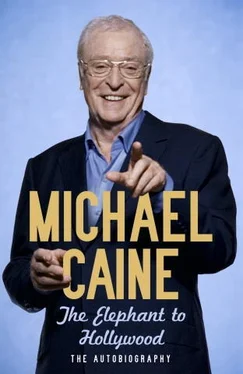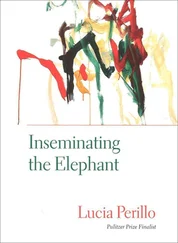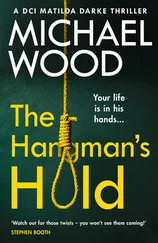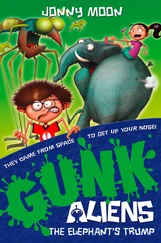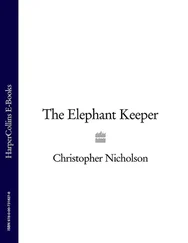Michael Caine - The Elephant to Hollywood
Здесь есть возможность читать онлайн «Michael Caine - The Elephant to Hollywood» весь текст электронной книги совершенно бесплатно (целиком полную версию без сокращений). В некоторых случаях можно слушать аудио, скачать через торрент в формате fb2 и присутствует краткое содержание. Город: London, Год выпуска: 2010, ISBN: 2010, Издательство: Hodder, Жанр: Биографии и Мемуары, на английском языке. Описание произведения, (предисловие) а так же отзывы посетителей доступны на портале библиотеки ЛибКат.
- Название:The Elephant to Hollywood
- Автор:
- Издательство:Hodder
- Жанр:
- Год:2010
- Город:London
- ISBN:978-1444700015
- Рейтинг книги:4 / 5. Голосов: 1
-
Избранное:Добавить в избранное
- Отзывы:
-
Ваша оценка:
- 80
- 1
- 2
- 3
- 4
- 5
The Elephant to Hollywood: краткое содержание, описание и аннотация
Предлагаем к чтению аннотацию, описание, краткое содержание или предисловие (зависит от того, что написал сам автор книги «The Elephant to Hollywood»). Если вы не нашли необходимую информацию о книге — напишите в комментариях, мы постараемся отыскать её.
The Elephant to Hollywood — читать онлайн бесплатно полную книгу (весь текст) целиком
Ниже представлен текст книги, разбитый по страницам. Система сохранения места последней прочитанной страницы, позволяет с удобством читать онлайн бесплатно книгу «The Elephant to Hollywood», без необходимости каждый раз заново искать на чём Вы остановились. Поставьте закладку, и сможете в любой момент перейти на страницу, на которой закончили чтение.
Интервал:
Закладка:
Regina (Audrey Hepburn): I already know a lot of people and until one of them dies I couldn’t possibly meet anyone else.
Peter (Cary Grant): Well, if anyone goes on the critical list, let me know…
And…
Regina: You know what’s wrong with you, don’t you?
Peter: No. What?
Regina: Nothing.
Brilliant, isn’t it?
3. On the Waterfront, 1954
This film was a revelation to me. The script by Budd Schulberg, the direction of Elia Kazan and the performances of the actors took me into a working-class reality in a way that I had never experienced in a movie before. Marlon Brando, Karl Malden, Rod Steiger and Eva Marie Saint were all Method Actors. There are two main principles: the first is that the rehearsal is the work and the performance the relaxation, so by the time you get to work in front of a camera you should be so familiar with what you are doing it seems effortless. The second principle is that your acting should come from sense memory, finding a moment in your own life to produce a real and instant emotion – I use it to this day, if I am required to cry. Not that I think of some great tragic incident, it’s just something that struck me as terribly sad. I’ve never told anyone – not even Shakira, to whom I am closer to than anyone else in the world – what that moment is. If I did, I would then be thinking of her reaction rather than my own and it would lose its power. The result in this film is quite extraordinary – especially in that iconic scene in which Marlon Brando as Terry and Rod Steiger as Charlie are in the back of the car and Terry says, ‘I coulda been a contender. I could have been somebody…’ Unforgettable.
2. The Third Man, 1949
Another Graham Greene novel – this time he adapted it for screen himself. And like all great movies, this has a fantastic sense of time and place. Post-war Vienna is an extraordinary setting for what I consider to be the best thriller ever. (Although films like Psycho , Rear Window , The Usual Suspects and Silence of the Lambs all run it as close seconds.) It was photographed in black and white by Robert Krasker with strange camera angles and a gritty documentary style and it has an unsettling and unforgettable sense of menace. The cast is fabulous – Joseph Cotton and Orson Welles in particular – the first time they had appeared together since Citizen Kane . The movie is full of so many memorable sequences it is hard to pull out just one, but perhaps I would point to the scene in which Harry Lime and Holly Martins are at the top of the giant Ferris wheel overlooking Vienna and Martins asks Harry if he has ever seen any of his victims… Harry brushes it off and after they get back down to the ground says to Holly as he’s walking away, ‘Like the fella says, in Italy for thirty years under the Borgias, they had warfare, terror, murder and bloodshed, but they produced Michelangelo, Leonardo da Vinci and the Renaissance. In Switzerland they had brotherly love – they had five hundred years of democracy and peace and what did that produce? The cuckoo clock. So long, Holly.’ Genius – and this line was written not by Graham Greene, but by Orson Welles himself. Then there’s the action climax and the chase through the sewers and the romantic climax where Joseph Cotton is waiting at the cemetery gates as Alida Valli is coming away from Harry Lime’s funeral. It’s a long walk towards him – will she stop? Or will she walk straight past? I’m not going to tell you. If you haven’t seen it, do yourself a favour and get a DVD right now!
1. Casablanca, 1942
Well – what else was it going to be? It should have been just another reasonably successful movie churned out by Hollywood. In fact, it probably shouldn’t have worked at all. It started shooting without a finished screenplay, from a play that had never seen the stage called Everybody Comes to Rick’s . I met Julius Epstein, one of the twin brothers responsible for the screenplay, and he asked me if I knew the traffic light at the bottom of Benedict at Sunset Boulevard just by the Beverly Hills Hotel. I told him I knew it well and I hated it because it always seemed to stay red for about five minutes. He smiled. ‘It was waiting at that traffic light every day,’ he said, ‘that my brother Philip and I wrote a lot of Casablanca …’
The studio wanted William Wyler to direct and ended up with Michael Curtz, who was, apparently, a very irritable and insensitive director. He was, however, responsible for a phrase still used today in English-speaking crews all over the world for a non-sound sequence. He was a Hungarian and whenever he wanted to do a scene without recorded sound he would shout out, ‘Mitt out sound!’, which became abbreviated to MOS.
It was another of those three films that Humphrey Bogart was only in because George Raft turned the part down and the studio had changed their mind about the original casting which was (picture this…) Ronald Reagan and Ann Sheridan. There was another problem: Bogart was about two inches shorter than Ingrid Bergman. I can’t imagine anyone asking Bogart to stand on a box, so this must have meant very difficult set-ups. On screen the two of them had a fantastic relationship, but that wasn’t the case off-screen and nor was it the case with the brilliant supporting cast, which includes Sidney Greenstreet, Peter Lorre and, of course, Claude Rains who nearly stole the film as Captain Renault. In fact, as Julius put it, ‘Nobody burst into tears when the movie finished shooting…’
But in spite of that, the film has gone on to be not only at the top of my list, but at the top of most people’s list. The music is memorable, and of course it contains some of the most often-quoted lines in the whole of the movie business. There are too many to mention here, but Rick’s line, ‘Of all the gin-joints in all the world, she walks into mine,’ stands out as one of the most poignant. And then there’s Rick’s famous last line, ‘I think this is the beginning of a beautiful friendship.’ It wasn’t even in the original script. It was written by the producer, Hal Wallis and dubbed by Bogart later over the shot of him and Claude Rains walking away into the mist. To me this looks like Hal Wallis – who was a very smart producer – hinting at the studio for a sequel. It never happened – and perhaps it’s best that we leave it on that note. For me, Casablanca will always be number one.
My Own Favourite Movies
I can’t help being aware of the image I have in the media as a movie icon, not that Shakira allows me to get away with any icon-ish behaviour, as I’ve said. She’s right of course, but I also know that I have made some films that mean a lot to other people – and they are important to me, too. I can’t do a Top Ten of my own movies: it’s got to be a Top Thirteen, because there is something about each one of these that means a lot. I’ve never been superstitious about the number thirteen; my passport number for years was 13 13 13 – and that got me safely to plenty of places – so here they are, in the order in which I made them, and here’s why they matter to me.
Zulu – my first big break. A wonderful introduction to the world of the movies and the first film in which I had a substantial part.
The Ipcress File – this was the first movie in which my name was ‘above the title’. Harry Salzman decided to do this even though it was not in my contract. When I asked him why, he said: ‘If I don’t think you’re a star, who the hell else will?’
Alfie – the biggest movie of my career to this point and the first movie of mine that was not only a success in the UK but also got a US release. It was also my first nomination for an Academy Award…
Читать дальшеИнтервал:
Закладка:
Похожие книги на «The Elephant to Hollywood»
Представляем Вашему вниманию похожие книги на «The Elephant to Hollywood» списком для выбора. Мы отобрали схожую по названию и смыслу литературу в надежде предоставить читателям больше вариантов отыскать новые, интересные, ещё непрочитанные произведения.
Обсуждение, отзывы о книге «The Elephant to Hollywood» и просто собственные мнения читателей. Оставьте ваши комментарии, напишите, что Вы думаете о произведении, его смысле или главных героях. Укажите что конкретно понравилось, а что нет, и почему Вы так считаете.
